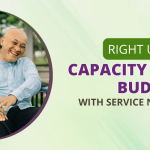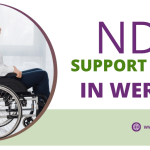
Accessing The Exceptional Support Under the NDIS, See Here!
Many times participants wish to know what exactly is counted as “Support Under the NDIS”, and it only helps to make things clear for them. However, while there are many categories that revolve around and are under the umbrella, let us know one particular. They are the ones that are the most important and definitely the necessary ones.
Why are they important? It is because they are crucial for participants to achieve their goals and live fulfilling lives. Understanding what these supports entail is essential for participants and their families.
Important Support Under the NDIS, Know Them Now!
This blog will explain the nature of reasonable and necessary support under the NDIS from the NDIS disability provider in Melbourne in simple terms.
What are these Support Under the NDIS?
Have you heard of something known as “Reasonable and Necessary Supports”? If not, then read this carefully. Reasonable and necessary support are the services and resources that the NDIS funds to help participants achieve their goals.
These supports aim to help a participant in their independence, social participation, and overall things in life. To be considered reasonable and necessary, support must meet specific criteria set by the NDIS.
Do You Match the criteria for the Reasonable Support Under the NDIS?
As participants you must be aware that NDIS plans have criteria that one must fulfil to get the support we are looking for.
For a support to be funded by the NDIS, it must:
Related to participant’s disability: The support must directly be about the participant’s disability. It should explain the impact on their daily life.
Not about everyday living costs: The support should not cover costs that everyone has, such as rent, groceries, or utility bills.
Be value for money: The NDIS looks for cost-effective solutions that deliver good outcomes for participants.
Be effective and beneficial: The support must be proven to help the participant achieve their goals.
Take into account informal supports: The NDIS considers the support participants receive from family, friends, and community networks.
Do these supports have different types?
Well, yes they do. The NDIS funds a wide range of supports, which can be grouped into three main categories:
Core Supports
These are the essential supports that help participants with daily living activities. Core supports can include:
- Assistance with Daily Life: Help with personal care tasks such as dressing, bathing, and eating.
- Transport: Funding for transport services to enable participation in community activities and appointments.
- Consumables: Funding for items like continence products or low-cost assistive technology.
- Assistance with Social and Community Participation: Support to help participants engage in social activities and community events.
Capacity Building Supports
These supports help participants build their independence and skills. They include:
- Support Coordination: Assistance in organising and managing NDIS supports.
- Improved Living Arrangements: Help with finding and maintaining suitable housing.
- Increased Social and Community Participation: Programs and activities designed to build social skills and community engagement.
- Finding and Keeping a Job: Support for employment-related activities and training.
- Improved Health and Wellbeing: Funding for therapies, exercise programs, and dietary advice.
Capital Supports
These are investments in long-term assets such as:
- Assistive Technology: Equipment and devices that assist with mobility, communication, and daily living tasks.
- Home Modifications: Changes to a participant’s home to improve accessibility and safety.
FAQs regarding Exceptional Support Under the NDIS
What does “Exceptional Support” under the NDIS mean?
Exceptional support is more about higher-level assistance that goes beyond standard disability supports. It’s made for participants who have complex needs. Those who require more intensive, specialised, or consistent support to live safely and independently.
Who can access Exceptional Support under the NDIS?
Participants with significant and complex disabilities. There is a need for physical, psychosocial, or mental health challenges faced by participants. The NDIS looks at the individual’s daily challenges and health requirements before approving exceptional support.
What kind of services are included in Exceptional Support?
This can include one-on-one specialised care. Participants will get behavioural support, assistance with high personal care needs. They can also have access to professional services like therapists and nurses. It’s about ensuring participants get the right level of care for their situation.
How does Exceptional Support help families and carers?
Exceptional support doesn’t just benefit the participant but also helps families and carers. There is support in place, carers get peace of mind knowing their loved one is safe, well looked after, and able to live with dignity.
Conclusion
Understanding reasonable and necessary support under the NDIS is vital for participants and their families. These supports are according to participants and their needs and goals, ensuring that they can lead more independent and fulfilling lives.
By meeting the criteria set by the NDIS, participants can access the right support to enhance their quality of life and achieve their aspirations. If you or someone you know is part of the NDIS, it’s important to be informed about the support available and how to access them effectively.



